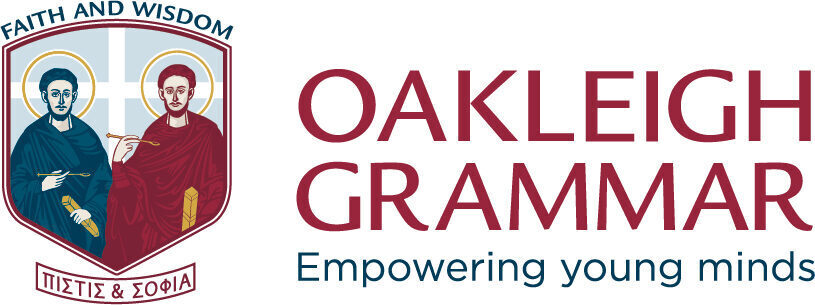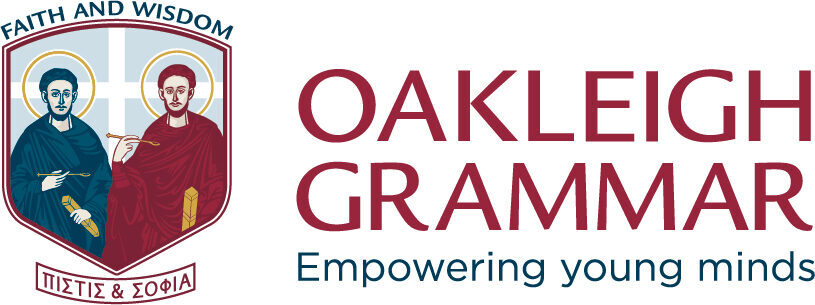Dysgraphia is a specific learning difficulty that impacts writing skills. People with dysgraphia might struggle with forming letters, spacing words properly, and organising their thoughts into complete sentences. Without proper support, students with dysgraphia may find it hard to take notes in class, finish homework, and do well on traditional tests.
Writing by hand can be challenging and even painful, leading to hand cramps, excessive sweating, and high anxiety. Over time, this can cause students to fall behind in their studies and avoid activities that involve writing.
Luckily, there are programs and classroom accommodations available to support students with dysgraphia.
How the Arrowsmith Program Provides Learning Difficulty Support
The Arrowsmith Program, offered by Oakleigh Grammar, is designed to help children with a range of learning difficulties. Based on 40 years of neuroscientific research, the program uses specific brain exercises to strengthen weak cognitive areas, including those that affect writing skills.
Understanding Neuroplasticity
The Arrowsmith Program relies on the concept of neuroplasticity, which is the brain’s ability to change and improve with the right activities. By engaging in targeted exercises, students can develop new brain connections that make learning easier. This principle is key in providing effective dysgraphia support.
Criteria for Enrolling in the Arrowsmith Program
Students who enrol in the Arrowsmith Program are typically of average or above-average intelligence but struggle with academic and social skills. The program helps with various learning difficulties, including:
- Dysgraphia (writing difficulties)
- Dyslexia (reading difficulties)
- Dyscalculia (math difficulties)
- Auditory and visual processing disorders
- Attention difficulties.
Determining Your Child’s Suitability for the Arrowsmith Program
To determine if the Arrowsmith Program is right for your child, you can complete the Arrowsmith Program Cognitive Profile Questionnaire. This helps identify whether your child’s learning issues, such as dysgraphia, can be addressed by the program.
Is the Arrowsmith Program suitable for you or your child’s learning difficulty?
The students at Arrowsmith School range in age from 6 years old to adults, and typically experience a range of problems, including:
- reading
- writing
- mathematics
- comprehension
- logical reasoning
- visual memory
- auditory memory
- dyslexia
- non-verbal learning
- auditory processing
- attention
Prospective parents and students are encouraged to complete the checklist to determine the program’s suitability and then contact our Admissions Coordinator at (03) 8554 0014 or email Admissions@oakleighgrammar.vic.edu.au, who will be pleased to answer your questions, and if appropriate, can arrange an assessment for you and your child.
Please note the Arrowsmith Program is not designed for individuals with developmental or intellectual delays, autism, brain injury or illness, or psychiatric or psychological disorders.
The Typical Arrowsmith Student
- is of average or above-average intelligence
- has a combination of the learning difficulties that are described in the Descriptions of Learning Difficulties on our web site and our brochure
- does not have severe intellectual, cognitive, emotional or behavioural disorders that would significantly affect his or her ability to participate in the Arrowsmith Program.
- does not have acquired brain injury or an autism spectrum disorder
- is of elementary, secondary or post-secondary school age
These are guidelines only. Many students fall within these guidelines; others may require further consideration and still others for whom we feel this program cannot provide meaningful benefit.
For example, we do not accept children with severe autism, but we have had success with high-functioning students with Asperger Syndrome. Some professionals consider Asperger Syndrome to be the same as or similar to high-functioning autism, and others associate it with a non-verbal learning disorder. There is no hard and fast rule, and we will consider their appropriateness for our program in consultation with the student’s parents.
These considerations apply equally to students enrolling at one of the schools that offer our program.
Is the Arrowsmith Program Effective For Support?
Dysgraphia support is important for children whose learning difficulties are with writing and reading. The Arrowsmith Program provides compassionate and personalised help to improve their writing skills and overall school experience.
By focusing on each child’s unique learning difficulty, the program aims to build their confidence and help them thrive academically and personally.
In many cases, these issues are a result of a combination of specific learning difficulties making it hard for the student to sustain attention in specific learning situations; others are related to specific learning difficulties related to regulating attention. These types of attentional difficulties have shown improvement as students engage in cognitive exercises.
How our Learning Difficulty Support Program Works
Arrowsmith deals with the root causes of a learning difficulty rather than managing its symptoms. Our goal is for our students to become effective, confident and self-directed learners for life and to enable them to achieve their goals of academic and career success.
Our dysgraphia support program, through a careful assessment, identifies areas of learning strength and weakness to create an individual learning profile for each student and then designs a program of individualised exercises for each student to target their precise areas of weakness.
Our program has been of benefit for students having difficulty with reading, writing and mathematics, comprehension, logical reasoning, problem-solving, visual and auditory memory, non-verbal learning, attention, processing speed and dyslexia.
As well as providing the Arrowsmith Program of cognitive exercises, Arrowsmith Program provides a comprehensive teacher training course, continuing professional development, year-round support for all Arrowsmith Program classroom teachers, a detailed web-based assessment for all students and ongoing monitoring and supervision of student progress over the internet and liaison with Arrowsmith Program Coordinators during the school year.
Students that we have followed up to 30 years after completion of the program have maintained their improvements. Once the improvement is in place, it is hypothesized that the individual maintains this gain by using the cognitive area in everyday functioning.
The study prepared by Dr. William A. Lancee in 2005 concluded that all deficit areas identified by the Arrowsmith Program improved as a result of the application of the Arrowsmith Program cognitive exercises.
Ready to make a positive change for your child?
Enrol at Oakleigh Grammar and discover how our Arrowsmith Program can provide the essential dysgraphia support your child needs to thrive. Contact us today to learn more about how we can help your child achieve their academic and personal goals.





